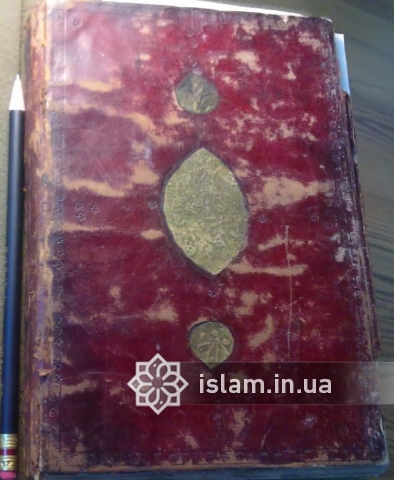The contemporary religious Muslim authorities have been debating for a long time about the position of the religion in relation to the present day problems. Given the fact that many Muslim societies suffer from violence, which was attributed to "Islamic" motivation, a lot of authors focuses on the "moderation" of Islam as a certain way to solve the problems which Muslim and non Muslim societies face. There is even a special term ("al-vasatyya"), which can be translated into English as "moderation". Although the statement of the concept in this sense is relatively new, according to the followers of the moderation idea, its principles were laid down in the Koran. In particular, they often cites the following verse: " Thus We have made you a middle nation that you may be witnesses to the people, and that the Apostle may be a witness to you. " (Qur'an, 2: 143). Most of the medieval commentators of the Qur'an understood the expression "ummatan vasatan" (literally " the middle community") as "fair". But some commentators of the twentieth century, in particular, Muhammad al-Tahir ibn Ashur (1879 - 1973) write about the following understanding of this verse: "this is the middle way between the extremes, which mean the exaggeration and the depreciation, arising from the fact that the whole Islamic community cannot be deluded into words, actions and beliefs." This understanding is reflected in the works of famous contemporary Islamic scholar Yusuf al-Qaradawi and other scientists. As far back as 2003, the international symposium "The importance of the Holy Quran in the approval of moderation and the avoidance of extremes" was held in Mecca, the final reports of which were published in the collection of scientific works. Today, many Islamic authors of both conservative and liberal camps apply to this idea.
In previous centuries of Islam, the idea of moderation was also represented in the works of Muslim authors. Al-Farabi (871 - 950) and Abu Ali Miskavejh (932 - 1031) offered to see the Islamic ethics as the "golden mean" between extremes. That idea was similar to the ancient conceptions of virtue; Ibn Taymiyyah (1263 - 1328) considered the Islamic law as "temperate law", because Islamic Shari'a combines the "Jewish justice" and "Christian mercy".
For many years, the Muslim theological thought formulated in terms of "moderation" the relation of individual human freedom and the divine will of the Creator. The concept of the "middle way" was applied as a rule. It was between the idea of absolute predestination of Dzabarits and absolute freedom of actions of Kadarists that were the first tendencies of Muslim philosophy. It is interesting that in the later period, in particular in the XVIII century, the authors, who came from Ukraine, were also involved in this process, namely the well-known scholar Muhammad ibn Mustafa al-Akkirmani (about 1690 - 1761). He was born in Belgorod-Dniester (now the Odessa region.). Muhammad Al-Akkirmani worked as a teacher in Istanbul, a judge in Izmir, Cairo, and at the end of his life, he filled a post of judge in Mecca. During his lifetime, Muhammad al-Akkirmani wrote dozens of works, among which the most famous is "Interpretation of forty hadithes '(in Arabic, published in Istanbul in 1905) and" The message of individual freedom "(about hundred manuscript copies of which have been preserved in various libraries of the world). The both works concerned the precise answer to the classic theological problem, which can be briefly described as follow:
Since God is the only true Creator of everything, so, according to the Sunni doctrine, God creates human behaviours (actions). But if God creates actions, how can a human be responsible for them? The search for the "middle way" between the extremes in this issue formulated the classical doctrine of "kasb" ("acquisition "). It was defined by Abu al-Hasan al-Ash'ari (873 - 936), and claimed that God creates the behaviour, but a human "acquires it". Abu Mansur Maturidi (870 - 944) also held those thoughts, although he believed that "kasb" was also created by God. But what about human intentions? Is it required to see them as "created by God" or as something else, because due to them the sense of responsibility emerge? Especially as the famous reliable Prophet hadith states: "The actions are by intentions" (Bukhari, Muslim).
Muhammad al-Akkirmani tried to answer this question by analyzing the very structure of human intent. In his work "The message about individual freedom", he confirms Sunni doctrine about creation of the actions, as well as human "capabilities" to do them. However, it is the man that turns the intention to the act by his "individual will" (literally "partial"). It means that he turns the ability to act in the action itself. The "individual will" isn’t a thing created by God, but it is a "condition", so the human is responsible for it. This will is based on the idea of freedom of choice, and this choice becomes possible due to the four components. Firstly, the "imagination" is the image of the future action — this image is created by God; secondly, the "desire," which is also, according Muhammad al-Akkirmani, created by God. And then here is a place for personal choice, it means the individual freedom. The human mind makes a decision to act in some way that causes the fourth condition, which is the "movement of the body organs", i.e. the act as such, created by God. In general, this position reflects the views of the school that was founded by Maturidi prominent theologians of the past, in particular by Abu-Sana al-Lyamishi (d. 1144). In his “Introduction to the principles of monotheism”, he wrote: "if the intelligent human thought of himself, he would logically realize that only he chose what he did, without any compulsion and violence, as through his own mind he learns that he has the ability do it or not to do".
So, Muhammad al-Akkirmani managed quite convincingly to explain the "middle ground" between the two extremes: the idea that the human will is also created by God (and therefore human being is doomed to act in certain way) and the view that the human acts by himself (this view limits the omnipotence of the Creator). The individual will belong to the condition, not to the things and if God knows what his servant chooses it does not mean that the Holy One forces him to certain actions. That’s why the man has the freedom of choice and he is responsible for his actions. This position was developed in line with the classic Maturidi and Ash'ari, but it was taken outside the traditional Turkish Islam. For example, the idea of free will was interpreted in such way by Medina muhaddith Muhammad Hayat al-Sindi (d. 1750), author of "Medina proclamation of free will."
How are these teachings important today? A number of contemporary Islamic studies scholars ( as Pessano J., Brukmayr F., Sariyannis M., etc.) notes that the individualization of free will and the conception of seeing the mind as the only responsible instrument of freedom of choice, have contributed to the rationalization of social and economic life. To some extent, this idea, which was formulated precisely in line with Islamic moderation (middle course between the unacceptable extremes), contributed to the latest reforms in the territory of the post-Ottoman world in the XIX century. The works by Muhammad al-Akkirmani, who came from Ukrainian lands, reaffirm that the regional Islamic intellectual tradition tried to avoid the extremes. It was reflected, in particular, at the complex theological debates.




